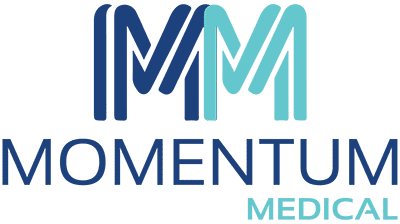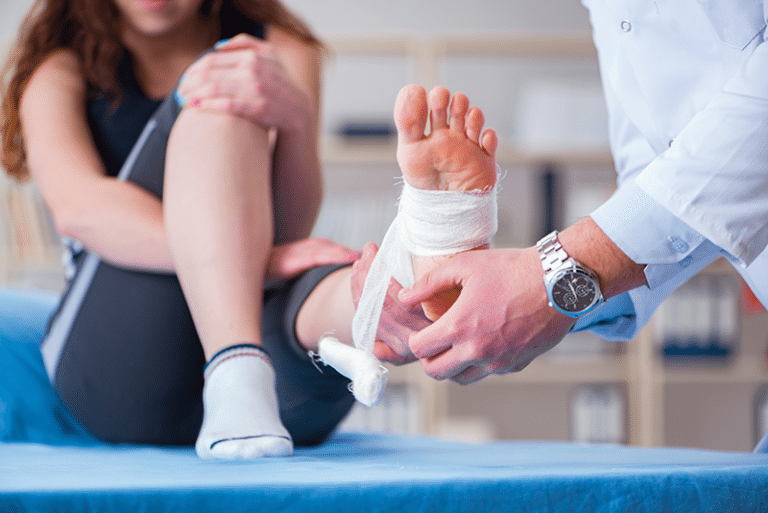Sports injuries can be crippling, and many people believe that surgery is the only way to recover. But what if there was a way to avoid surgery for sports injuries and still heal effectively? With the help of a knowledgeable and experienced doctor, you can find alternative treatments for your sports injury.
Sports injuries are all too common, and they can significantly impact an athlete’s performance and overall well-being. While surgery may seem like the logical solution, it’s not always necessary or the best course of action.
In fact, opting for surgery should be a last resort, as it comes with risks and a lengthy recovery period. Fortunately, some doctors specialize in non-surgical treatments for sports injuries.
Suppose you’re an athlete or someone who has suffered a sports injury. In that case, you must explore all your options before jumping into surgery. By seeking the guidance of a doctor specializing in non-surgical treatments, you could avoid surgery for sports injuries altogether and still achieve a full recovery.
This post will outline some ways a doctor can help you avoid surgery and get you back in the game as quickly and safely as possible.
Non-Surgical Approaches for Sports Injuries
Sports injuries are a common occurrence among athletes of all levels. From sprained ankles to torn ligaments, these injuries can be debilitating and require proper treatment for a full recovery.
While surgery is often seen as the go-to solution for sports injuries, there are non-surgical approaches that can effectively treat these injuries and get athletes back in the game.
Physical Therapy
Physical therapy is a non-surgical approach to rehabilitating and strengthening injured muscles, tendons, and ligaments. A skilled physical therapist will create a customized treatment plan that includes exercises and techniques to improve range of motion, decrease pain, and increase strength.
Physical therapy can be particularly beneficial for injuries such as sprains, strains, and tendonitis.
Bracing and Taping
These are commonly used to treat sports injuries to support and stabilize the affected area.
Braces are often made of neoprene or other supportive materials and are worn during physical activity to prevent further injury. Taping, on the other hand, involves applying adhesive tape to the injured area in a specific pattern to provide additional support and stability.
Platelet-Rich Plasma (PRP) Therapy
PRP therapy is a non-surgical treatment involving injecting a concentrated solution of the patient’s platelets into the injured area.
Platelets contain growth factors that promote healing and tissue regeneration. PRP therapy has been shown to be effective in treating conditions such as tendinitis, muscle strains, and ligament injuries.
Shockwave Therapy
This non-invasive treatment uses high-energy sound waves to stimulate the healing process in injured tissues.
The sound waves create microtrauma in the affected area, triggering a response from the body’s natural healing mechanisms. Shockwave therapy has been shown to be effective in treating conditions such as plantar fasciitis, tennis elbow, and Achilles tendonitis.
Regenerative Medicine
This is a cutting-edge field that focuses on the development of new therapies to repair and regenerate damaged tissues. Stem cell therapy and platelet-rich plasma therapy are examples of regenerative medicine approaches that have shown promise in treating sports injuries. These treatments involve the injection of cells or growth factors that promote healing and tissue regeneration.
While surgery may be necessary in some instances, avoiding surgery for sports injuries should always be considered a first-line treatment. These approaches provide effective relief from pain and inflammation, promote long-term healing, and prevent further damage.
If you’ve suffered a sports injury, consult a qualified healthcare professional to determine the best treatment for your specific condition. Remember, getting back in the game is possible with the right non-surgical approach.
Utilizing Advanced Diagnostic Tools
Advanced diagnostic tools in sports medicine have transformed the treatment of sports injuries, allowing for more accurate diagnoses and targeted treatment plans.
These tools, such as MRI scans and ultrasound imaging, provide detailed information about the extent and location of the injury, allowing doctors to make informed decisions about the best course of action.
By using these diagnostic tools, healthcare professionals can often avoid surgery for sports injuries, opting for non-invasive or minimally invasive treatments. This reduces the risk and recovery time for athletes and saves them from unnecessary surgical procedures.
Alternative Therapies
While traditional medical treatments for sports injuries, such as medication and physical therapy, are effective, alternative therapies can also play a significant role in the recovery process.
With the guidance and supervision of a doctor, these therapies can complement traditional medical approaches and aid in faster healing and rehabilitation.
Here are some alternative therapies to avoid surgery for sports injuries that can be beneficial when used in conjunction with medical treatment:
Acupuncture
Acupuncture is an ancient Chinese practice that involves inserting thin needles into specific points of the body to alleviate pain and promote healing. It can help reduce inflammation, relieve muscle tension, and improve blood flow to the injured area. By stimulating the body’s natural healing process, acupuncture can speed up recovery and reduce pain.
Chiropractic Care
Chiropractors specialize in the treatment of musculoskeletal conditions, including sports injuries. They use manual adjustments and manipulations to realign the spine and other joints, alleviate pain, and improve mobility.
Chiropractic care can be particularly beneficial for injuries such as sprains, strains, and joint misalignments.
Massage Therapy
Massage therapy is a well-known alternative therapy that can help avoid surgery for sports injuries. It involves the manipulation of soft tissues, such as muscles and tendons, to reduce muscle tension, improve circulation, and promote healing.
Different massage techniques, such as deep tissue massage or sports massage, can target specific areas of the body affected by the injury.
Herbal Medicine
Herbal medicine uses plants and plant extracts to treat various ailments, including sports injuries. Certain herbs, such as arnica, turmeric, and calendula, have anti-inflammatory properties and can help reduce swelling and pain.
Herbal supplements and topical creams can be used with traditional medical treatments to aid in healing.
Homeopathy
Homeopathy is a holistic approach to medicine that uses highly diluted substances to stimulate the body’s natural healing abilities. It can be helpful in treating sports injuries by reducing pain, promoting tissue regeneration, and improving overall well-being. Homeopathic remedies are tailored to each individual’s specific symptoms and needs.
It’s important to note that while alternative therapies can be beneficial, they should always be used under the guidance and supervision of a qualified medical professional. A doctor specializing in sports medicine can assess the injury, recommend appropriate treatments, and oversee the integration of alternative therapies into the overall treatment plan.
Optimizing Recovery To Avoid Surgery for Sports Injuries
Surgery is often the last resort when treating a sports injury, and, in many cases, it can be avoided with proper medical care. A doctor specializing in sports medicine can provide athletes with the best strategies for preventing surgery and optimizing recovery without going under the knife.
Don’t let sports injuries sideline you! You don’t have to accept surgery as the only route to recovery. At Momentum Medical, we believe in exploring all avenues before resorting to invasive procedures.
With our expertise in non-surgical treatments and alternative therapies, coupled with advanced diagnostic tools, we are dedicated to helping you heal effectively and get back in the game as soon as possible.
Please consult our sports medicine specialists to discover your full treatment options. Remember, every step you take towards recovery brings you closer to your sporting goals. Make your appointment today and begin your journey to healing and peak performance.

